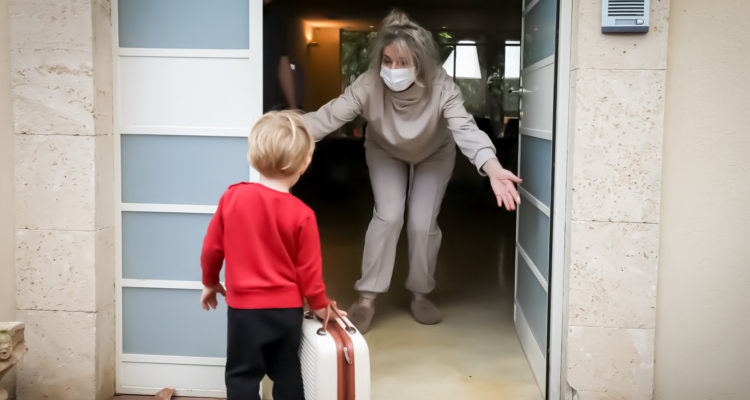Places of work that do not receive the public can reopen, and one-on-one services can return. Malls, cinemas, and other closed areas remain shuttered.
By Aryeh Savir, TPS
Israel’s third coronavirus lockdown officially ended on Sunday morning, while many of the restrictions remained in place and the infection rate in the country remained high.
The Cabinet approved a gradual easing of the restrictions, including the cancellation of the restriction on being more than 1,000 meters from one’s home, and the opening of national parks and heritage sites.
Places of work that do not receive the public can reopen, and one-on-one services can return. Malls, cinemas, and closed areas remain shuttered.
From Tuesday, classes will be opened throughout the country for preschoolers, grades 1-4 and grades 11-12 in “green” and “yellow” localities with low infection rates, while in “orange” and “red” cities, classes will take place alternately every other day, in the open air, without entering the kindergarten or classroom.
The government also decided to partially open its closed skies. Starting Monday, any traveler abroad with Israeli citizenship who left Israel before Jan. 25, will be able to return from any destination in the world without the required approval from the Exceptions Committee, subject to a negative corona test valid for 72 hours or less before their arrival.
The Cabinet is slated to hold an additional meeting Sunday afternoon to discuss the continuation of the exit plan on Sunday.
Israel is exit a four-week-long lockdown while the infection rate remains high, the number of patients hospitalized is still high, and the “R infection coefficient” is a high 1.
Professor Eran Segal, a computational biologist at the Weizmann Institute of Science and an expert on COVID-19 in Israel, explained that lifting the restrictions will produce more contacts between people, and the R will exceed 1. The big question is what will happen to the number of patients hospitalized in serious condition, a crucial factor affecting the health system’s ability to cope with the pandemic.
On the one hand, the vaccine campaign will reduce the number of new severely ill patients. On the other hand, the increase in verified patients will eventually increase the number of patients in serious condition as well.
“Which of the trends will win? No one knows,” he said
Even though the vaccines work, we do not know how much they reduce infections and serious illness, he noted.
“So what should be done? First of all, open gradually and wait step by step,” he offered.
He explained that even if the vaccines affect the number of patients in serious condition in the short term, there are about 400,000 Israelis over the age of 50 who have not been vaccinated. Because a patient at this age has a 10% chance of becoming a patient in serious condition, “an uncontrollable outbreak of morbidity still has the potential for masses of seriously ill patients.”
It appears that “we do not seem to have a strategy, and we have moved on to managing the epidemic according to the crapshoot method. Hopefully, we will really succeed, because the price of the mistake can be very high,” he concluded.
Over 3,426,400 Israelis have received the first dose of the Pfizer-developed COVID-19 vaccine, some 37.18% of the population.
The Ministry of Health updated Sunday that it documented 2,624 new COVID-19 cases over the past day. The number of tests conducted over the weekend was low.
Of the 28,852 tests done over the weekend, a very high 9.4% returned positive.
A high number of 1,110 patients hospitalized with corona are in serious condition, 330 of them are on life support.
The number of Israelis who have died of the virus since the outbreak in the country almost a year ago is 5,074.





